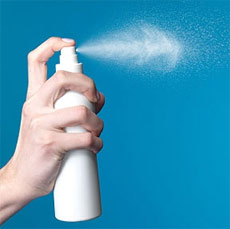 It is easy to see that the air inside your home is loaded with all kinds of things that can cause discomfort. Just take a look at where sunlight is coming through a window. Suspended in the air you will see dust, flooring fiber, dust mites, and even dead skin. Worse than what you do see is the stuff you do not; bacteria, viruses, microbes, and particle too find to be seen. This is the stuff that will end up in your lungs and can make you sick.
It is easy to see that the air inside your home is loaded with all kinds of things that can cause discomfort. Just take a look at where sunlight is coming through a window. Suspended in the air you will see dust, flooring fiber, dust mites, and even dead skin. Worse than what you do see is the stuff you do not; bacteria, viruses, microbes, and particle too find to be seen. This is the stuff that will end up in your lungs and can make you sick.
Truth be told, it is not your fault, however. No matter how clean a home you keep, or steps you take, some dust is inevitable. And unless you die, you will keep shedding skin to the tune of millions of cells a day. You can, though, look into some type of air purifier to clean as much of this stuff as possible.
A HEPA (high efficiency particulate air filter) type air filter has become the most popular method of trapping the particles that get stirred up every time we walk across the floor or sit on the furniture. Most folks will use a HEPA filter as part of the exhaust ion the vacuum cleaner, as the dense filtering material works to catch dust and assorted pollutants by two methods. This first is of course the interlocking of the media fibers, and they physically catch dust and larger stuff; they keep it from passing through. Second, the fibers are also “sticky.” So, is something is smaller than the holes in the media (if they were no holes, air could not pass through), it gets stuck when it comes in contact the filtering media.
Now, in order to qualify for a HEPA rating, the filter has to filter out 99.7% of all particles smaller than .3 microns in size. To give you an idea of that size, a human hair is 17 microns in size. But, despite that requirement, a HEPA air filter quickly loses its effectiveness as it gets clogged with dust. They need to be cleaned out every time a person cleans; something that most people don’t do. Look at the exhaust on a vacuum with a HEPA; you will notice a film of fine dust around it, and will see dust expelled when you turn it on if it is held up to a light.
With people seeking more “natural" ways of cleaning and sanitizing their home, more and more are going with machines that use water for the air filter. There are different makers and models of an air purifier that pulls in air, runs it through a small reservoir of water, and clean air comes out the exhaust. This also works to capture microbes, bacteria, and viruses, and there are no holes for them to escape through. Fruits, oils, and scents can also be added to the water to make things smell fresher, and there are never expensive filters to change out; simple toss out the dirty water and add clean.
Some HEPA and water based air purifier machines go a step further and add a UV element. This offer both the filter qualities of the HEPA or water, and use UV light to make sure than any microbes that get pas the media gets zapped and killed. This are more applicable to HEPA filters, as again they have holes in them that bacteria and viruses can slip through, while water tends to catch and hold these things.
No matter what type of air filter you ultimately decide to go with, make sure you understand the benefits and limitations of the machine. HEPA works well, but has to be cleaned frequently or it won’t work. Water needs to be changed with some frequency as well. Find one that fits with your preferences, is quiet (huge consideration!), and won’t take up too much space and get in the way.



